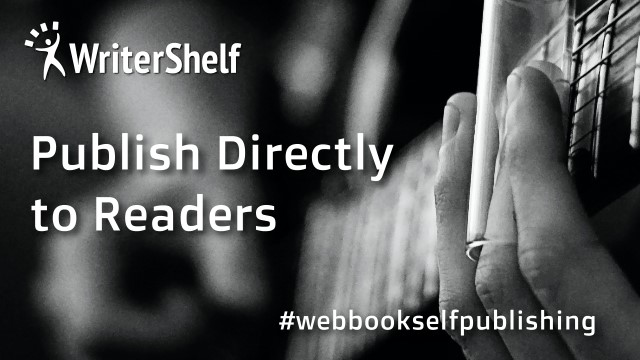Cleanup Tips That Make Any Jobsite Look Brand New
1
0
·
2025/07/17
·
5 mins read
☕
WriterShelf™ is a unique multiple pen name blogging and forum platform. Protect relationships and your privacy. Take your writing in new directions. ** Join WriterShelf**
WriterShelf™ is an open writing platform. The views, information and opinions in this article are those of the author.
Article info
Tags:
Total: 1086 words
Like
or Dislike
More from this author
More to explore









Ever walked past a jobsite in NY and thought, “Wow, that place looks spotless”?
It’s not magic. It’s smart cleanup. In cities like New York, where space is tight and first impressions matter, clean jobsites aren’t optional. They’re essential. That’s where professional construction site cleaners come in. They don’t just sweep stuff away. They actually make the place shine. Whether it’s a dusty reno project in Queens or a massive build in Brooklyn, tidiness is non-negotiable. Let’s talk real tips — ones that actually work — to get any jobsite looking sharp, fast.
1. Daily Sweep-Ups Go a Long Way
Don’t wait till the end. That’s the golden rule. Dust and debris build up quickly, especially with drywall cutting, sanding, or even basic framing. If crews wait till the end of the week, cleanup becomes a monster. Assign someone (or better, rotate shifts) to do quick end-of-day sweeps. Not deep cleans. Just a quick once-over. Think: clearing walkways, dumping trash bins, organizing tools. This one habit changes the whole vibe on-site.
2. Rent a Dumpster — Seriously, Just Do It
New Yorkers know this: you can't pile trash just anywhere. You’ll get fined or worse — the neighbors will hate you. Having a roll-off dumpster on-site, properly placed and sized for your project, saves hours of headache. It keeps trash where it belongs. And yes, size matters. A tiny bin for a full gut reno in Manhattan? Rookie move. Go bigger than you think you'll need. Also, keep it locked or covered. Wind gusts, raccoons, and nosy city folk all love a messy pile.
3. Separate and Label Materials
This tip's underrated but gold. Keep things sorted. Always. Don’t toss scrap wood, nails, or broken tiles into one pile. That’s lazy. Instead, label bins clearly — wood, metal, plastics, hazardous materials, etc.
It makes recycling smoother, which by the way, is a huge deal in NY. Local regulations are no joke, especially when it comes to disposal. Plus, if inspectors pop in and your waste is a mess? Yeah, good luck explaining that.
4. Don’t Let Dust Take Over
Construction sites and dust go hand-in-hand, no doubt. But there’s a difference between a little dust… and a total dust storm. Use plastic sheeting to seal off dusty zones. Install zipper doors if you’re working inside existing buildings. And fans? Turn 'em the right way. You want to blow dust out, not around.
Also, air scrubbers help. They’re not just fancy machines. They make breathing easier for workers and cut cleanup time in half. And this is the perfect spot to bring in construction dust removal methods. These aren't just about sweeping — it’s filtration, HEPA vacs, controlled airflow, and misting systems. Especially in NYC where old buildings carry lead paint and more, proper dust management isn’t just good practice — it's safety protocol.
5. Pressure Wash the Perimeter
Once the inside’s looking good, it’s time to hit the outside. Sidewalks, driveways, entryways — they all matter. In New York, curb appeal’s a big deal. You don’t want your work to be remembered for muddy boot tracks.
A quick power wash removes grime, paint splashes, and concrete dust. Just make sure it doesn’t flood neighboring properties. Again — city life, tight quarters, shared walls. Use biodegradable cleaners if runoff goes near drains. It’s the law, and also… just the right thing to do.
6. Tidy Up the Toolbox
Tool chaos is real. And it wastes time. When drills are buried under empty boxes and screws are scattered across the floor, frustration hits. Not to mention, safety risk goes way up. Make tool cleanup a team thing. Assign zones. Use mobile tool chests with labels. And always check inventory before and after a shift.
Some crews in NY have even started using QR-coded bins for tracking gear. That might be overkill for small jobs, but for big ones? Total game changer.
7. Mind the Neighbors
Yep, your jobsite affects them too. Especially in places like the Upper West Side or downtown Brooklyn, where buildings share walls or sidewalks. Loud noises, late cleanups, and flying debris? That’s how you get complaints.
A clean jobsite makes you a better neighbor. Set expectations early. Inform them of timelines. Apologize for the mess when needed. A small note or a knock on the door goes a long way. Don’t be “those guys” who leave garbage bags stacked outside the entrance.
8. Final Walkthrough = Final Impress
Last day on-site? Don't rush. Do a proper walkthrough. With fresh eyes. Better yet, bring someone who wasn’t part of the day-to-day. They’ll spot what your tired eyes miss. A random nail here. A drywall smudge there.
Fix it all. Clean every corner. Because when clients walk in, they don’t just see your work — they see how you left it. And in NY, word-of-mouth travels fast. One impressed client turns into five referrals.
9. Eco-Friendly Matters More Than You Think
Green cleanup isn’t just a buzzword anymore. In a city like New York, eco-conscious construction is rising. So should your cleanup strategy. Use green cleaning products. Reuse what you can. Recycle everything else. If your crew handles disposal, make sure they know the local recycling codes. If you use outside help, hire teams that are licensed and follow NY environmental standards. Clients care about this stuff. Especially commercial ones. It reflects your values.
10. When in Doubt, Hire Pros
Look, not every crew wants to handle full cleanup. That’s fine. There are solid companies in NY that specialize in post-construction cleanup. They're efficient, detail-oriented, and usually better equipped. They know which dump sites take what. They’ve got hazmat licenses. They bring the gear.
Sure, it costs. But it also saves hours — maybe even days — of back-and-forth. More importantly, it protects your rep. And when you're juggling permits, punch lists, and late-stage fixes, outsourcing cleanup might just be the smartest move.
The Final Word
Cleanup isn't an afterthought. It's part of the job. In fact, it might be the part people remember most. No one raves about perfect pipework behind drywall. But they will rave about a spotless, finished site that looked move-in ready. Especially in a fast-paced place like New York.
With the right habits, tools, and approach, any jobsite — big or small — can leave a great final impression. So next time the work’s almost wrapped up, take a breath. Grab the broom. Fire up the vacuum. Or call in backup. And turn that messy site into something that feels… brand new.